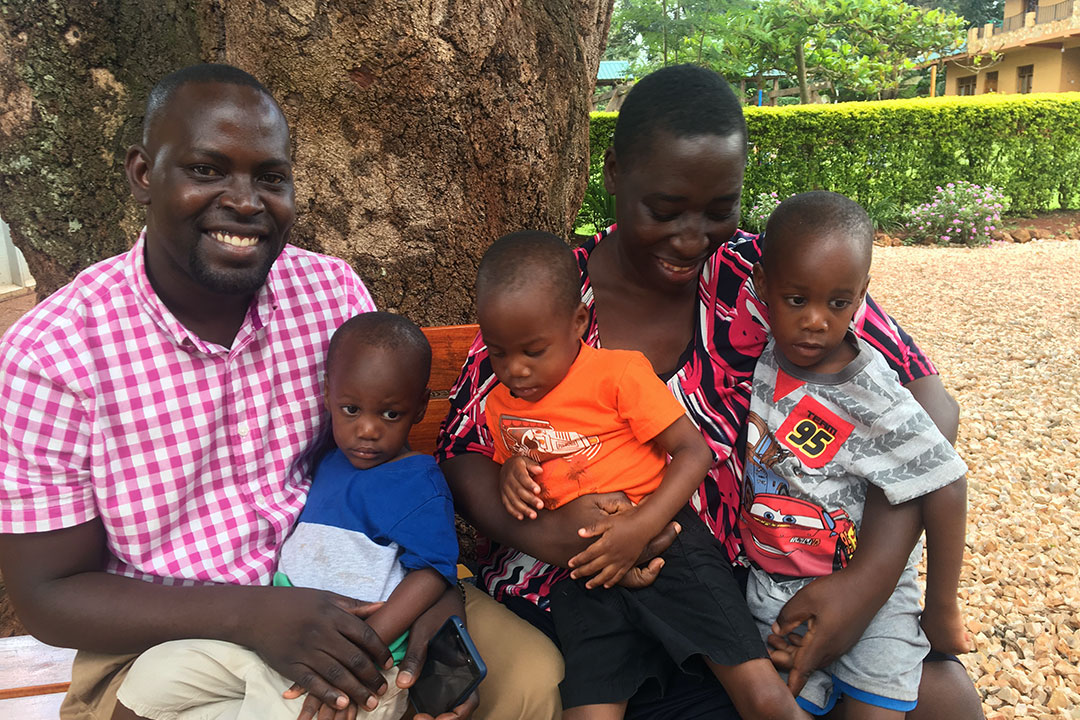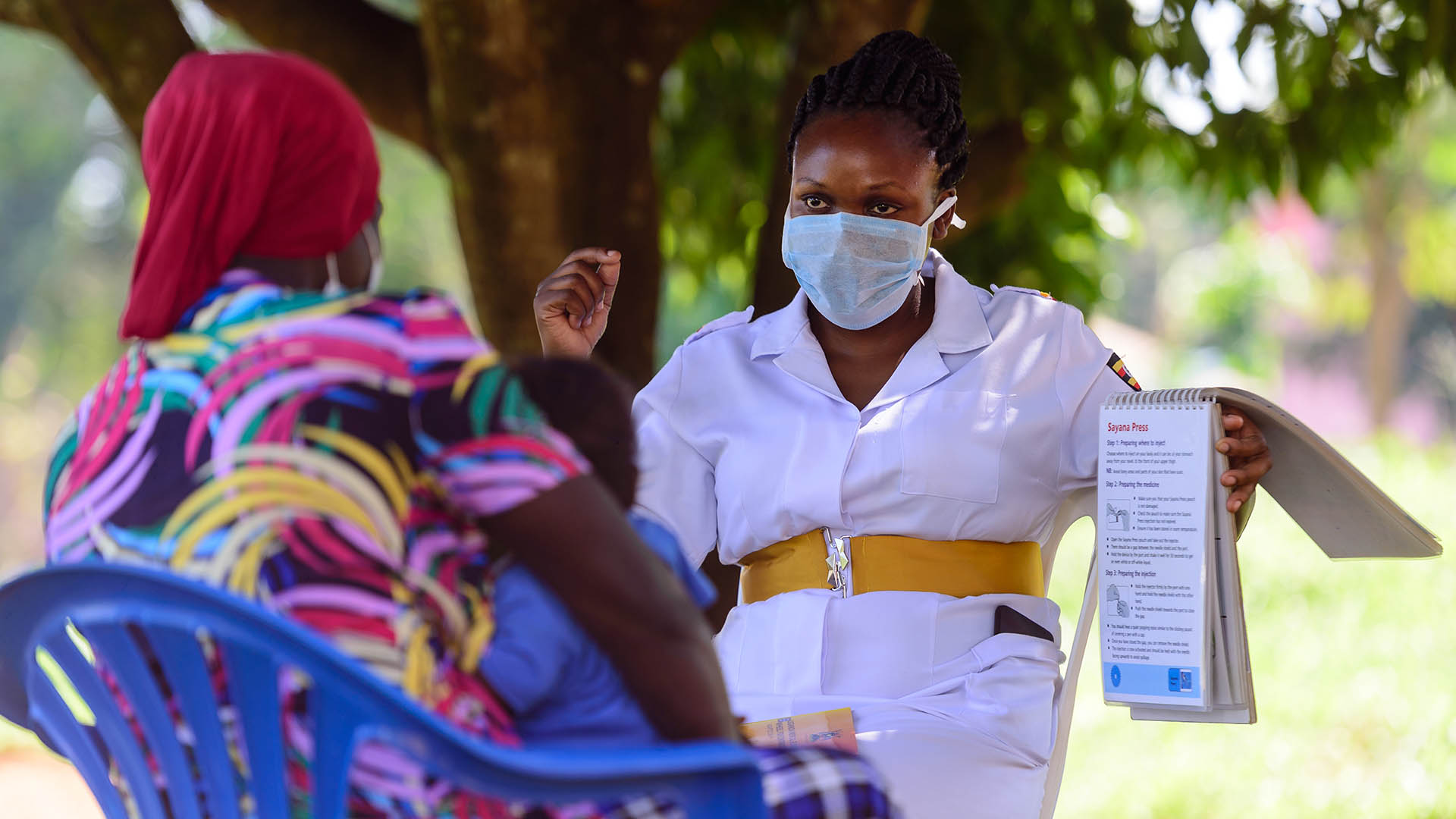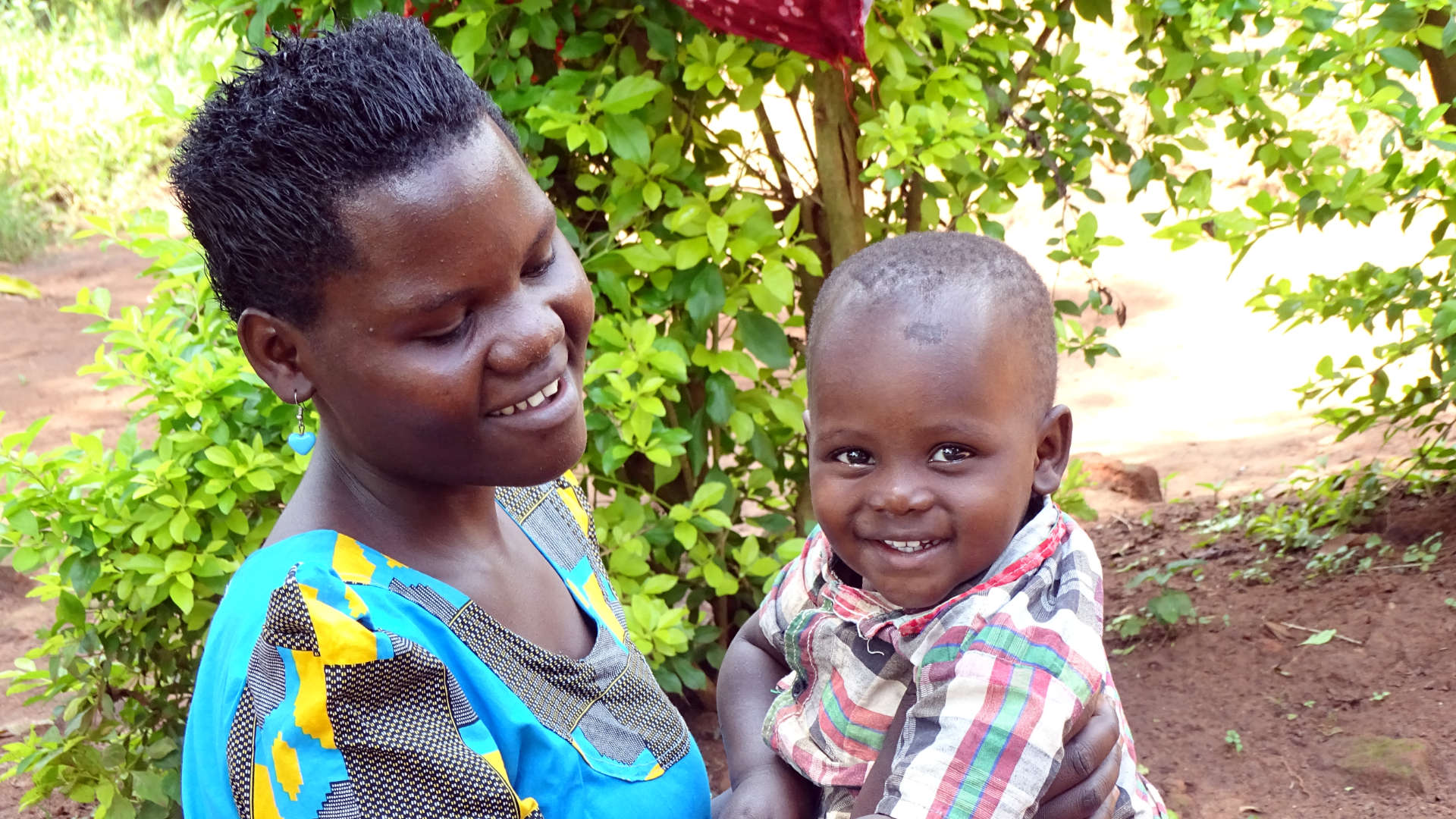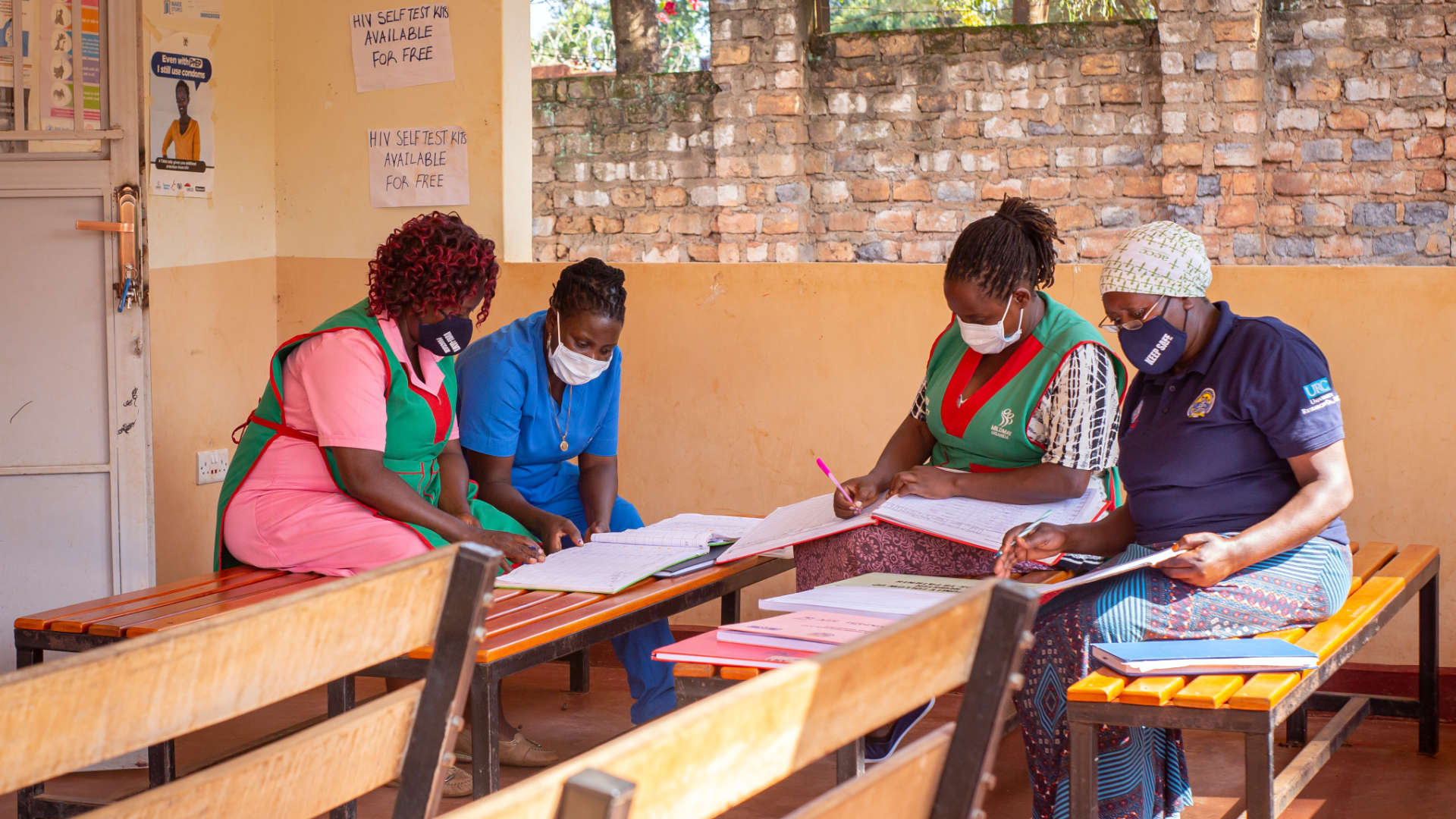Christine, a 39-year-old subsistence farmer living in Nkombe Village, Mawoota Parish, East Central Uganda, is HIV positive. But her triplets – Nathan, Hudson, and Christopher – are HIV-negative.
Christine is one of 7,343 clients receiving care and treatment at the AIDS Support Organization (TASO) Health Center in Jinja, a non-governmental organization supported by USAID’s Regional Health Integration for Enhanced Services in East Central Uganda (RHITES-EC) Project.
As an HIV-positive client, Christine belongs to the Bukatube Community Drug Distribution Point (CDDP), a community HIV care group in her parish. CDDP provides HIV drug refills and care, including six-month clinical reviews. It is this support group that saved the lives of her triplets.
A CDDP team – including a counselor, expert client (HIV patients who provide peer-to -peer counseling), laboratory personnel, and clinician – conducts and monitors treatment adherence and viral load suppression for community members. And they support pregnant women to prevent HIV transmission to their unborn babies.
Navigating Two Big Surprises
During a routine six-month clinical review for people living with HIV on antiretroviral therapy, Christine’s blood sample revealed a high viral load of 90,121 copies/ml. A routine pregnancy test revealed that she was three months pregnant.
“I was picking up my medicines but was afraid to take them because my partner of five years did not know that I was HIV-positive,” Christine said, “In addition, my partner was not prepared for the pregnancy.”
With support from a counselor and an expert client, Christine was referred to TASO-Jinja for antenatal care and enrolled in prevention of mother-to-child transmission (PMTCT) and intensive adherence counseling programs. Throughout her pregnancy, members of the CDDP support team visited Christine at her home and provided psychosocial support.
Christine was asked to bring her partner Peter to the PMTCT clinic, where the TASO team encouraged him to test for HIV. Peter tested HIV-negative. With the help of couples counseling, they stayed together. Peter supported Christine to continue attending antenatal care, elimination of mother-to-child transmission clinics, and intensive adherence counseling (IAC) sessions. After three consecutive monthly IAC sessions, Christine’s viral load was undetectable.
Christine gave birth to healthy triplets at Jinja Regional Referral Hospital six months after her pregnancy test at the CDDP. Unfortunately, Peter, a subsistence farmer earning less than $30 USD monthly, was unable to take care of Christine and the triplets. With support from the TASO Jinja team, volunteers, and a Jinja District probation officer, the three-week-old triplets were referred to Amani Children’s Home, where the parents visited them once a month.
The TASO Jinja team provided Nevirapine syrup to the triplets daily for six weeks to prevent HIV transmission. TASO tested the triplets for polymerase chain reaction and antibodies at six weeks, 12 months, and 18 months. Within six months, the triplets were discharged from the PMTCT-Early Infant Diagnosis Program with HIV negative results!
A Team Effort is Helping to Prevent HIV Transmission
At three years old, the triplets were reunited with Peter and Christine in the presence of district, village, and other community leaders, as well as relatives, to ensure that there is a full-time support system for them.
Peter and Christine are incredibly grateful for TASO, Amani Children’s Home, family members, local leaders, the district probation officer, and the community development officer for supporting the triplets during the first years of their lives.
The story of Christine, Peter, and their triplets demonstrates the importance of community care groups established by the USAID RHITES-EC-supported TASO-Jinja-PMTCT Program in early identification of HIV-positive pregnant women. These early interventions have contributed to a 90% HIV-negative rate for babies of pregnant women enrolled in the program.



